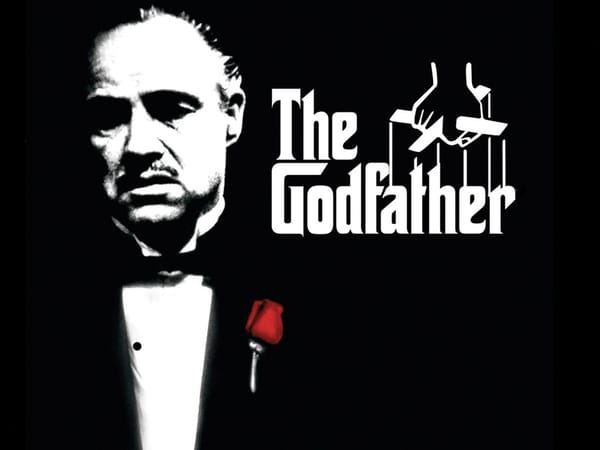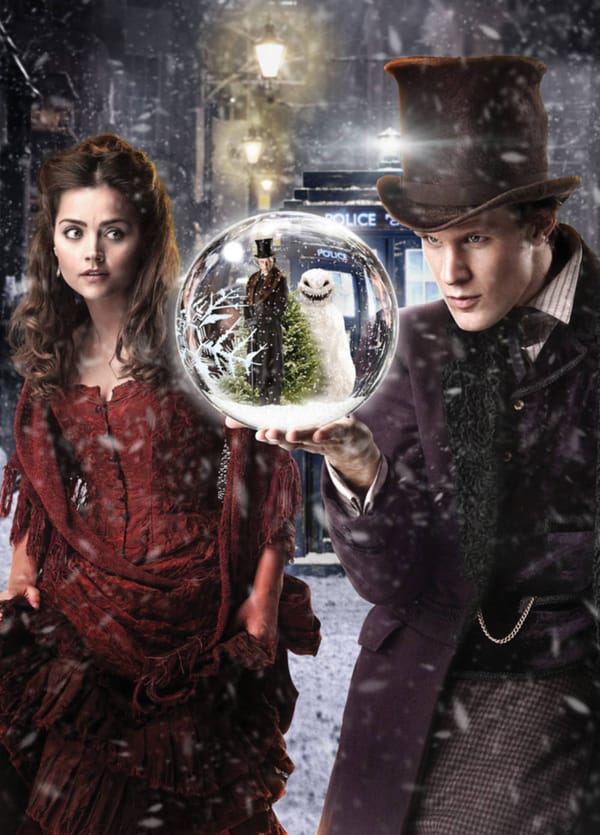Inception: the theory of the ring
An analysis of the real story told by Nolan’s movie and a different vision of the ending

Ok, yes, I am two years late. I am aware of that. I am also aware of the fact that everyone has now seen Inception, discussed it, explained it and looked for the mathematical inconsistencies of the dream world (although I suspect the latter is only true for Imperial students). What more can possibly be said about it after two years?
Well, there must be something, because you can be certain that, as a movie conversation grows longer, the probability of someone bringing Inception into it approaches 1 (yes, this is my own variation of Godwin’s law).
Obviously Inception is a very original movie, where its storyline entwines and unfold between past and present, dreams and reality, long dialogues and James Bond-type action sequences (was the snow scene really necessary?). And certainly the impeccable filming, the phenomenal cast and the breathtaking special effects contribute towards making this one of the best films of recent years and one which will be remembered.
Nevertheless, after two years people are still racking their brains over the ending, seeking for an answer to the question raised by the last scene. Will the spinning top fall? Was he trapped in a dream or did he manage to escape Limbo reaching the real world? Is there a workable answer or will Nolan take the mystery to the grave? Will I be able to ever look at Ellen Page without thinking: “Hey! It’s Juno!”?
I never really hoped to find a definitive answer to any of these questions (although for the last one I’m pretty confident that the answer is no, I won’t). Yet some months ago, in an afternoon completely dedicated to work, while I was wandering the internet during the sixth or seventh half an hour break of the day, I ran into a very interesting theory.
A crazy man with too much free time hasnoticed a small detail, during what I presume was his 100th screening of the movie. Leonardo DiCaprio’s character (Cobb) wears a wedding ring in every sequence in which he wanders through the dream world. This ring is however absent when he is awake. Is this the definitive distinction between dream and reality in the movie?
The intriguing part of the theory is that, during the last scene, in which he finally see his children again, the ring is not on his finger. We can therefore logically conclude that the absence of the ring proves that Cobb wasn’t dreaming. Happy ending and case closed. But is it? Having gained knowledge of this theory I decided to watch Inception once more. My mind, freed from the burden of having to understand the intricate plot, was ready to concentrate on the small details missed out during the first screening. I ended up watching it twice in two days. And I understood that the ring theory is wrong. And actually Inception tells a completely different story. But let’s try to explain things in an orderly fashion.
At the beginning and for most of the movie, Cobb is a character grieved by guilt. Having performed Inception on his wife during their stay in Limbo, implanting deep inside her mind the idea that the world she was living in was not real, he became directly responsible for her death. Indeed, despite the fact that it was the right idea, considering where they found themselves, it was implanted so deeply into her subconscious that, even when they came back to reality, it kept growing in her head, persuading her that she was still dreaming and leading to her suicide. Because of him she was convinced she would just wake up.
It is this guilt that chains him to his deceased wife. Cobb cannot accept her death, he cannot let her go. In his subconscious he is still married with her. For this reason, in his dreams, in the subconscious world, he still wears the ring. Deep inside, she is still his wife.
From there unfold the parallel stories of the heist and of the evolution of Cobb’s character and his fight to find inner peace, which culminates in a scene near the end of the movie. In the deeper dream level, just before Cobb goes to Limbo to rescue Saito, he has a conversation with the mind projection of his wife, in which he forsakes the temptation of staying with her. His subconscious acknowledges for the first time that she is just a projection of his mind, that his real wife is gone forever and his real life is with his son and daughter. He takes the conscious (and unconscious) decision of leaving her, leaving the memories behind and freeing himself from his chains.
For this reason, in my opinion, the theory of the ring is wrong. For how I see it, past that moment Cobb is not haunted anymore by the memory of his wife even in his unconscious. From that moment on, he will not wear the ring anymore in his dreams nor in the real world. Therefore uncertainty left by the last scene stays.
But does it really matter? We have just seen that Inception is not about a mind heist, or, if you prefer, the heist is not the main story of the movie. The actual story told by Nolan is the inner and emotional path undertaken by DiCaprio’s character. In my opinion, the key moment of the ending scene is not the last shot on the spinning top, which staggers slightly just before the credits start, but is located some seconds before. Cobb spins the totem but then forgets about it when he sees his children’s faces. He takes the (unconscious?) decision that he doesn’t care anymore if this is dream or reality. He reached inner peace, which is what he was looking for during the whole movie. This is the real ending of Inception.
Now, having deceived those who believed I could provide a meaningful answer to the finale, let me just say one last thing. You cannot watch a good movie only once. Cinema is an art so full of small details that it makes it impossible to fully appreciate its beauty in one screening. Inception (like all good movies) is full of them. Some details are essential for a deeper understanding of the story, other are just proof of good writing and acting. Small things that, however, make you enjoy the movie a lot more.
Watch Inception again. Concentrate your attention on the characters and not the plot and I can promise you that, by the end, you’ll feel like you have watched a completely different movie.








